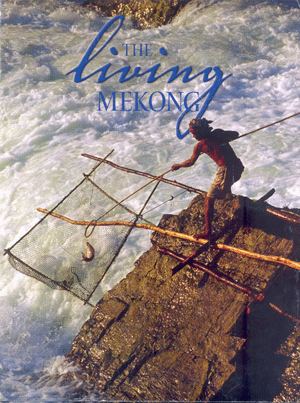Wonderful images of life on the river
A new book touches on issues central to the debate surrounding the Mekong's future, capturing some of its great beauty and the fragility of the ecosystems it nourishes.
The Living Mekong. By Joe Garrison (photography) and Delia Paul (text); Silkworm Books; 146 pages; THB 850.

Drawn on research about fisheries and the environment by the Mekong River Commission and the World Wide Fund for Nature, this book shows how the Mekong's seasonal rise and fall shapes daily life for the people who live on and around it, in matters from transport to festivals to fish trap design. By world standards, the Mekong fishery is immense in scale, producing around 2.5 million tons of wild fish a year, or roughly two per cent of the entire world catch. In numbers of fish species, the Mekong is second only to the Amazon.
This unique collection of photographs takes us beyond the familiar postcard views of the Mekong to sites rarely seen by the public-from secluded natural pools known only to local fishers, to factory floors that package the fillets appearing on restaurant platters all over the world. Aerial images, captured from helicopters, show habitats that are critical to the survival of many species. This book will appeal to everyone with a heart for this mighty river, an eye for a fast-changing way of life and a mind for the choices the Mekong’s people face today It serves as a reminder that knowledge sharing, informed planning and cooperation are essential to achieve a balance between rapid economic progress and the sustainable development of rural livelihoods.
About the contributors
Joe Garrison is a photographer and scientist who specialises
in documenting the people of Southeast Asia and their interactions
with the natural environment. An environmental toxicologist
by training, Joe previously worked as a research consultant
with the MRC Fisheries Programme, and now operates his business,
Garrison Photographic, in Phnom Penh, Cambodia.
Delia Paul is a researcher and writer on environment and development issues who has lived in the Mekong region for many years, working with leading agencies for environmental management and poverty reduction.
Choose a newsletter: